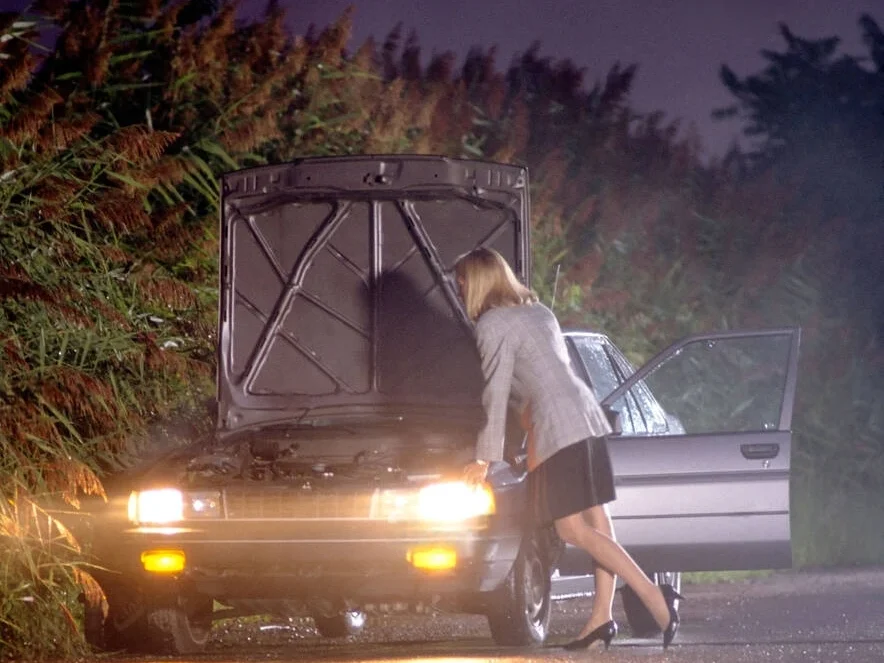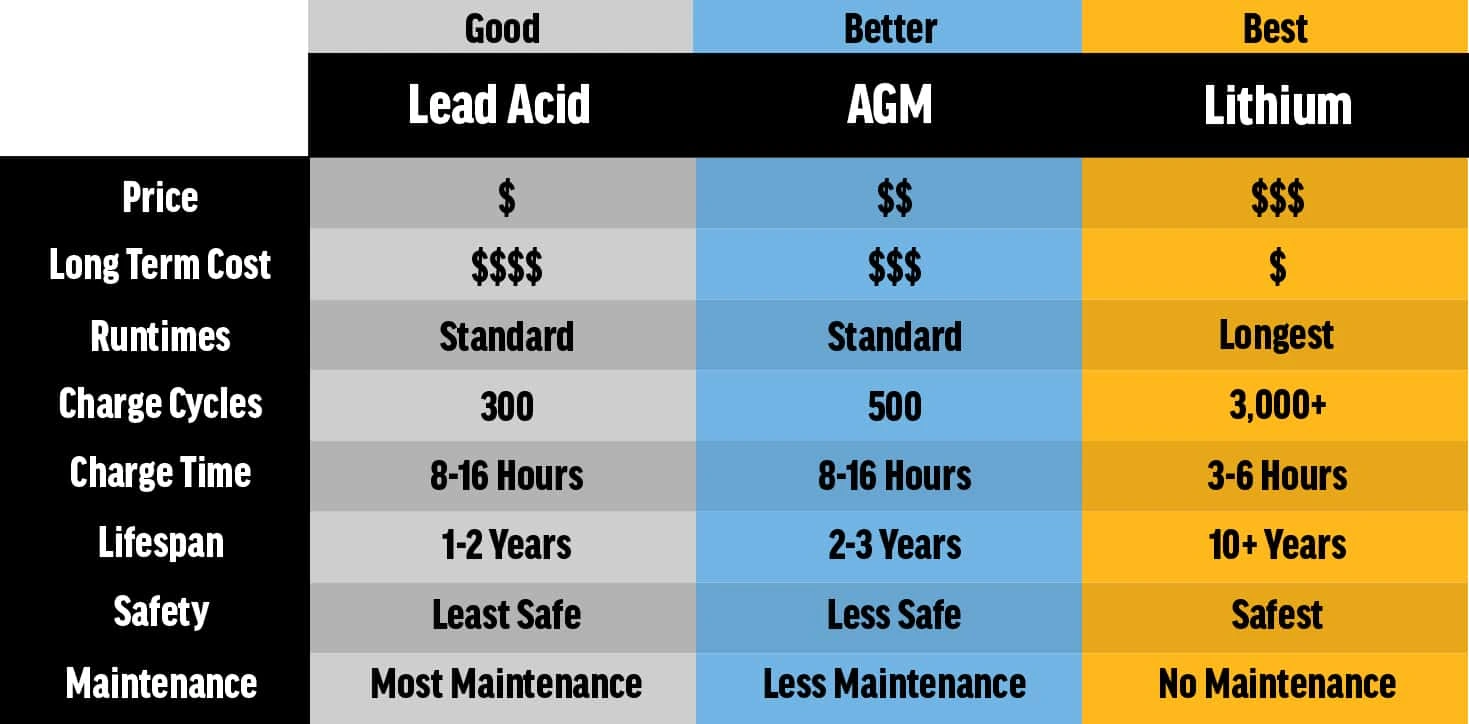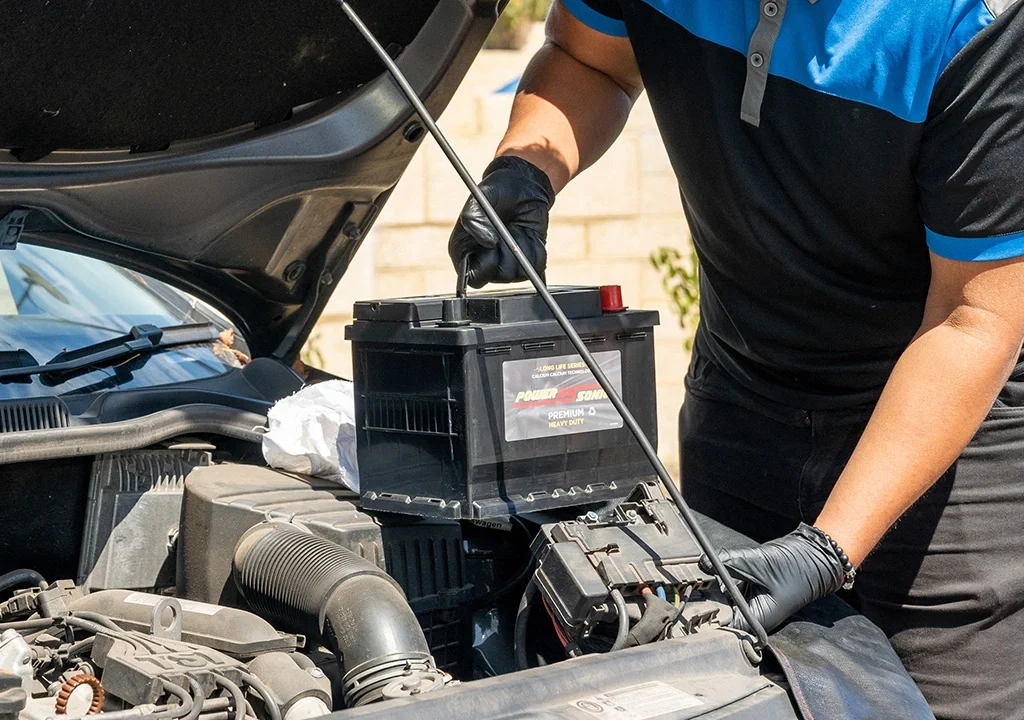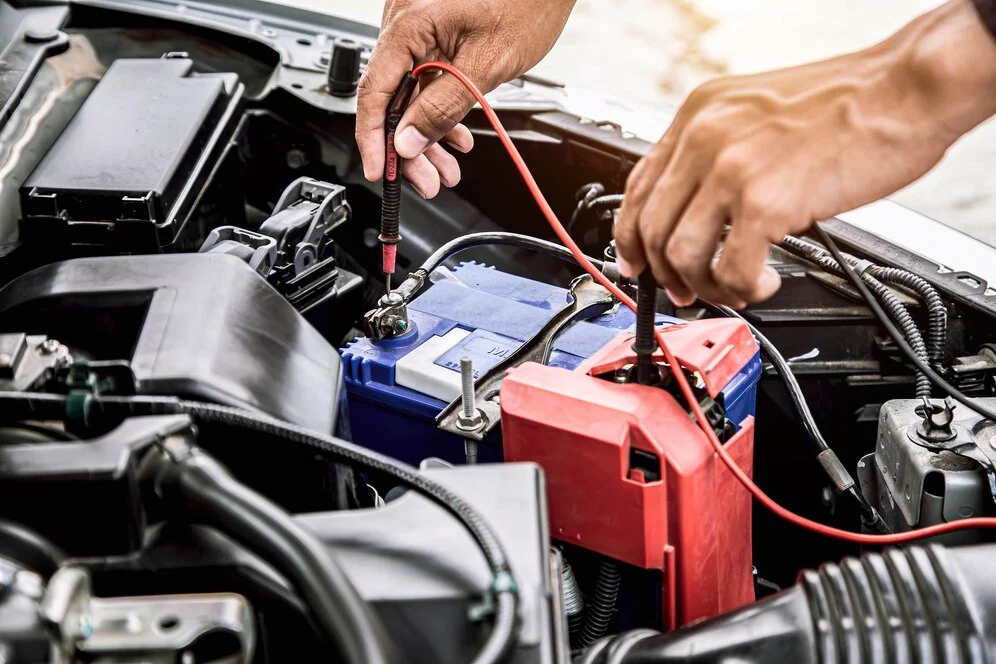
Want to replace your car battery before it fails? A car battery is an essential component, but knowing when to replace your car battery can save you from sudden breakdowns.
So, when should you replace your car battery? In this guide, we’ll dive into the signs of wear, how to maintain your car battery, and the best practices for replacing your car battery at the right time.
Why Car Batteries Wear Out and How They Function
Before deciding when to replace your car battery, it’s essential to understand its role. A car battery stores chemical energy, converting it into electrical energy to power critical systems like the starter motor, lights, and onboard computers.
As you drive, the alternator recharges the battery, but over time, replacing your car battery becomes necessary due to degradation from heat, chemical reactions, and wear. Recognizing this natural decline helps you replace your car battery proactively, avoiding breakdowns.
A car battery is responsible for storing chemical energy, which it then converts into electrical energy to power critical systems such as the starter motor, lights, radio, air conditioning, and onboard computer systems. This energy is what allows your car to start and continue running smoothly.
As your vehicle is in operation, the alternator works to recharge the battery, replenishing the energy used during startup and while running various electronic systems. This cycle of discharging and recharging happens continuously as you drive. However, like all mechanical components, car batteries have a limited lifespan.
Over time, batteries degrade due to repeated chemical reactions, heat exposure, and general wear and tear. The internal components gradually lose efficiency, resulting in reduced capacity to hold a charge or deliver sufficient power when needed.
Understanding how a car battery functions is the first step in recognizing when to replace a car battery. By being aware of the natural process by which batteries degrade, car owners can take proactive steps to test, maintain, and ultimately replace your car battery before it leads to performance issues or unexpected breakdowns, helping ensure that your vehicle remains reliable.
Proper knowledge ensures you’re not caught off guard and helps you keep your vehicle running at peak performance.
Signs That Your Car Battery Needs to Be Replaced
Just like a worn battery can affect electrical systems, the performance of your brake system is another critical safety aspect that should never be overlooked. Your vehicle’s brakes are essential for safe driving, ensuring you can stop quickly and effectively in all driving conditions. Over time, the wear and tear on your brake pads and rotors can compromise their performance, making it vital to stay on top of regular inspections.

Understanding how to inspect and change your car’s brake pads and rotors not only helps maintain optimal performance but also ensures your safety on the road. Regular maintenance and timely replacement of these components can prevent potential accidents and costly repairs down the line.
In a similar vein, recognizing when to replace a car battery is equally important, as doing so can save you from the frustration and expense of a sudden, unexpected breakdown. The battery plays a crucial role in powering your car’s electrical systems and ensuring a smooth start each time you get behind the wheel. However, as your battery ages, its efficiency diminishes.
Paying attention to the common signs that your battery may be nearing the end of its life can help you avoid being stranded. From dimming headlights to slow engine cranks, early detection of a failing battery allows you to replace it before it completely gives out, saving you from inconvenience and unnecessary stress.
Early detection allows you to replace your car battery before it completely fails, saving you from the stress and inconvenience of a breakdown. Here are the common signs that your battery may be nearing the end of its life:
1. Slow Engine Crank

If starting takes longer, it may be time to replace your car battery.
2. Dim or Flickering Lights
Another indicator that your battery is wearing out is dim headlights or interior lights. If the electrical systems in your car aren’t functioning at full power, the battery may not be supplying enough voltage to support them.
3. Dashboard Warning Light
Indicates charging issues; consider a car battery replacement.
4. Corroded Battery Terminals

Clean or replace your car battery if corrosion disrupts connections.
5. Age of the Battery
Older batteries risk failure; plan to replace your car battery preemptively.
How Often Should You Replace Your Car Battery?
If your car battery is starting to show signs of wear—such as slow engine cranking, dim lights, or a dashboard warning light—you may begin to wonder, how often should you change your car battery? Most batteries last 3–5 years, but climate, driving habits, and type affect longevity. In extreme heat or cold, replacing your car battery sooner may be necessary. Frequent short trips also strain the battery, while AGM batteries last longer (up to 6 years). However, it’s important to understand that this is just a general guideline and not a guaranteed timeframe for every vehicle.
The answer to how often should you change your car battery really depends on several key factors that influence battery performance and longevity. These include the climate in which you drive, your daily driving habits, the type and quality of the battery installed, and how well you maintain it over time.
For instance, drivers in extremely hot or cold regions may find that their batteries wear out faster due to temperature-related stress on battery components. Similarly, frequent short trips that don’t allow the alternator enough time to fully recharge the battery can shorten its life.
Monitoring your battery’s performance regularly and having it tested during routine maintenance can help you determine the right moment for replacement. So, rather than waiting for a complete failure, it’s wise to understand how often should you change your car battery based on your specific driving conditions and the warning signs your vehicle may be giving you.
1. Climate

The temperature where you live plays a big role in battery lifespan. Hot climates can cause batteries to degrade faster, while cold weather can affect a battery’s ability to start the engine.
2. Driving Habits
If you do a lot of short-distance driving or your car spends a lot of time idling, the battery may not get fully charged. This can shorten its lifespan. Longer drives allow the alternator to recharge the battery effectively, which helps preserve its longevity.
3. Type of Battery

There are various types of car batteries, such as lead-acid, AGM (Absorbent Glass Mat), and lithium-ion. Some battery types are more durable than others. For example, AGM batteries tend to last longer than traditional lead-acid batteries, often lasting up to 6 years with proper care.
How to Extend Your Car Battery’s Life
Pairing your battery check with routine service like an oil change at home is a practical and efficient approach to vehicle maintenance. Not only does it save time and trips to the mechanic, but it also helps you stay proactive in monitoring your car’s overall health.

When you perform an oil change at home, it’s the perfect opportunity to take a few extra minutes for a battery check—looking for signs of corrosion, ensuring the terminals are tight and clean, and testing the battery voltage if you have the proper tools. By building these small tasks into your DIY maintenance routine, you can prevent bigger issues from arising later on.
Even though car batteries will inevitably wear out over time, regular maintenance plays a crucial role in how long your battery will last. Simple actions like performing a battery check during an oil change at home can help you catch early signs of wear and reduce the risk of unexpected battery failure.
Keeping a close eye on your battery’s condition allows you to make informed decisions and potentially delay replacement, saving money and hassle in the long run. Remember, By staying proactive, you can replace your car battery before it fails completely and extend its overall lifespan.
Delay the need to replace your car battery with these tips:
1. Regular Maintenance Checks
Regularly inspect your battery and electrical system. Look for signs of corrosion and ensure the terminals are tight and clean. Have your battery tested during routine maintenance to detect any early issues.
2. Keep the Battery Clean
Keeping your battery clean can help prevent corrosion. Use a mixture of baking soda and water to clean the terminals, ensuring a better connection.
3. Avoid Short Trips
Frequent short trips don’t allow your car battery to fully charge. Whenever possible, aim for longer drives to ensure the battery stays fully charged.
4. Insulate the Battery
If you live in an area with extreme temperatures, consider installing an insulating cover for your battery to protect it from excessive heat or cold.
When to Replace Your Car Battery Yourself or Use Mobile Car Battery Replacement
When it comes time to swap out an aging or failing car battery, many drivers ask the common question: “Can I replace my car battery myself?” The answer largely depends on your level of comfort and experience with basic car maintenance.
For those who are handy with tools and have a general understanding of vehicle components, replacing a car battery is considered a straightforward task. It typically involves disconnecting the old battery, removing it from its tray, and installing a new one while observing proper safety precautions.
With the right guidance, tools, and a bit of confidence, many car owners find that this is a DIY job they can successfully complete at home.
However, if you’re still wondering, “Can I replace my car battery myself?”, it’s important to consider factors like safety, proper handling of battery terminals, and ensuring that the replacement battery is compatible with your vehicle.
Modern cars often have complex electronic systems, and some may require special reset procedures or memory-saving tools during the battery replacement process. If you’re unfamiliar with these steps or don’t have access to the proper equipment, it might be wise to seek professional assistance to avoid accidental damage.
Ultimately, the decision comes down to your experience and the complexity of your vehicle’s setup. For confident DIYers, doing it yourself can save time and money. But if you have any doubts, consulting a mechanic or using a mobile car battery replacement service ensures the job gets done safely and correctly.
Replacing the Battery Yourself
Replacing a car battery is a relatively simple task, but it requires the right tools and safety precautions. Here are the general steps:
- Turn off the vehicle and remove the keys from the ignition.
- Disconnect the negative terminal first to avoid sparking.
- Remove the positive terminal and then the battery.
- Install the new battery in reverse order.
If you’re not comfortable with replacing the battery yourself, consider using a mobile car battery replacement service.
Mobile Car Battery Replacement

Using a mobile car battery replacement service is an excellent option for those who want to avoid the hassle of going to a shop. A weak battery can significantly impact the electrical performance of your vehicle, especially when you’re upgrading systems that require a steady and reliable power supply.
Whether you’re installing new lighting, audio systems, or making engine modifications, a failing battery could restrict the full potential of these upgrades. A healthy, strong battery is essential to ensure that your vehicle’s electrical components function smoothly, especially when working with high-powered systems.
If you’re diving into the world of car tuning or modifications, you should make sure your battery is in top condition to handle the additional demands. To learn more about preparing your car for these upgrades, check out our comprehensive guide on car tuning for beginners.
If you’re not entirely comfortable replacing the battery yourself, or if you want to save time and avoid any potential hassle, consider opting for a mobile car battery replacement service. These services bring the replacement battery directly to your location, whether you’re at home, work, or even stranded on the side of the road.
The technician will not only supply the right replacement battery for your vehicle but will also handle the installation, saving you both time and effort. This is especially helpful if your battery dies unexpectedly, and you’re unable to get to a mechanic or auto parts store right away.
With mobile car battery replacement services, you can continue your day without the stress of having to find a shop or deal with a dead battery on your own.
Can you replace your car battery yourself? Yes, if you’re comfortable with basic tools:

- Turn off the engine.
- Disconnect negative/positive terminals.
- Swap the old battery for a new one.
For convenience, use a mobile car battery replacement service to handle the job onsite.
Common Myths About Car Batteries
There are several myths surrounding car batteries that could lead to confusion. Let’s address some of the most common ones.
“A Car Battery Only Needs Replacing When It Dies”
Waiting for your battery to completely die before you replace your car battery could leave you stranded and cause additional issues. Proactively replace your car battery to avoid emergencies
“Cold Weather Kills Car Batteries”
While cold weather can affect a car battery, it’s the combination of cold temperatures and an aging battery that causes issues. Even in mild climates, regular maintenance is key to battery longevity.
Conclusively speaking, knowing when to replace a car battery is an essential part of maintaining your vehicle’s overall health and ensuring that your car runs smoothly without any unexpected disruptions. A car battery plays a crucial role in powering various electrical systems in your vehicle, from starting the engine to supporting the lights, radio, and other essential components.
Over time, however, the battery’s efficiency naturally declines due to normal wear and tear. By staying alert to the signs of a weakening battery, such as dimming headlights, slow engine cranks, or electrical malfunctions, you can take proactive measures to replace it before it completely fails.
Adhering to a regular maintenance schedule for your battery, along with knowing when to replace a car battery, can help extend its lifespan and ensure that your vehicle remains reliable. In general, most car batteries need to be replaced every 3-5 years, but factors like climate, driving habits, and the make of your vehicle can influence this timeline.
If you’re unsure whether your car battery is nearing the end of its life, it’s always a good idea to consult a professional. You can schedule a battery test at an auto service center to assess its health. Alternatively, you can also make the process more convenient by opting for a mobile car battery replacement service.
This allows you to have a new battery installed right at your home or workplace, saving you the hassle of visiting a shop and minimizing downtime. Don’t wait until your battery fails—take charge of your vehicle’s performance today by regularly checking your battery and knowing when to replace your car battery.
Knowing when to replace your car battery ensures reliability. Watch for warning signs, follow maintenance tips, and replace your car battery every 3–5 years or as needed. For a stress-free solution, opt for a mobile car battery replacement service.
Need help? Get a professional battery check or replace your car battery today!
Glad to listen from You
If you’re noticing signs of battery wear or just want to make sure your car is in top shape, don’t wait for a breakdown! Get your car battery checked today by a professional or use a mobile car battery replacement service for a hassle-free solution.

 Cart is empty
Cart is empty
[…] to replace your car battery yourself can save time and money while keeping your ride in peak condition. Check out our simple […]
[…] Replacing your car battery for optimal performanceThis creates both challenges and opportunities for dealer service centers. […]
[…] should note that their vehicles still require conventional car battery replacements. Discover the step-by-step process for battery replacement to maintain your hybrid’s peak […]